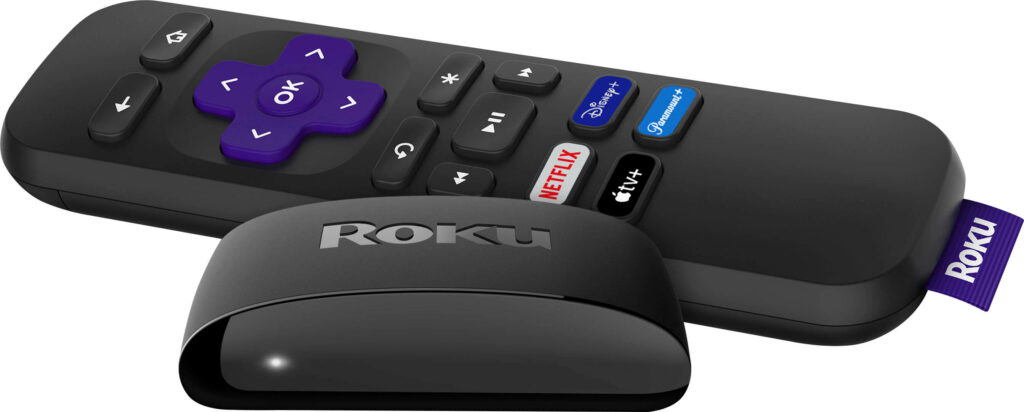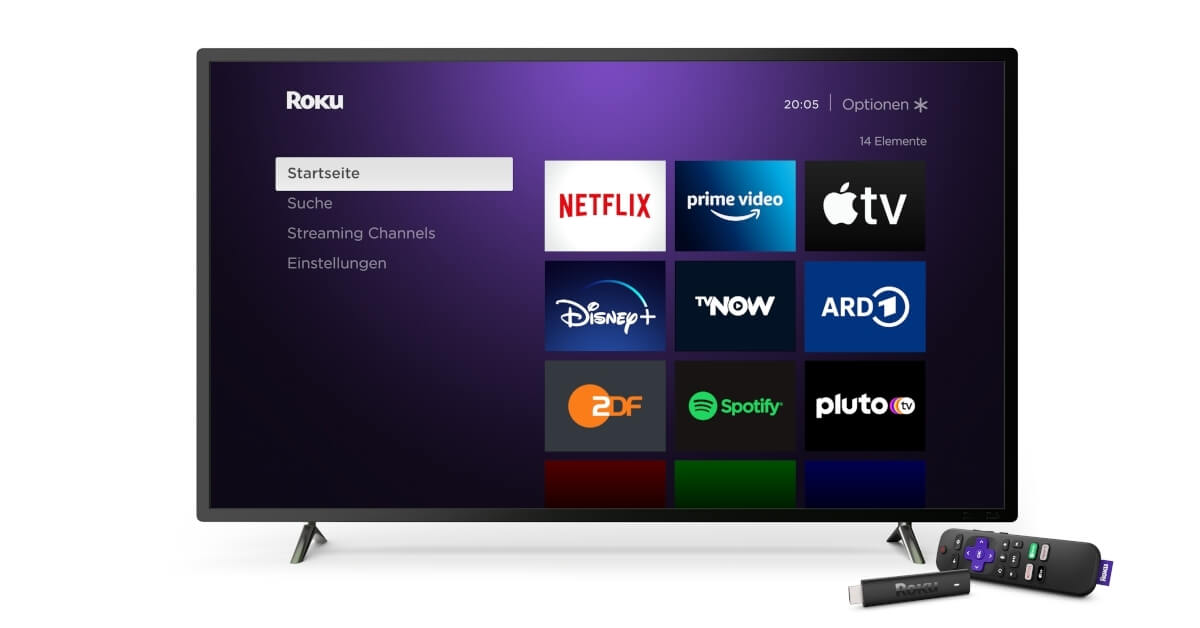Roku recommends a minimum internet speed of 3 Mbps for SD streaming and 9 Mbps for HD streaming. 4K streaming requires at least 25 Mbps. Your actual internet speed requirements may vary depending on the streaming channel and content you are watching.
Understanding Roku Devices
Roku devices are popular streaming platforms known for their convenience and user-friendly interface, enabling users to access a wide range of streaming services like Netflix, Amazon Prime, and Hulu. But to make the most of these entertainment options, internet speed requirements must be considered.
Generally, for high-definition (HD) streaming, a few megabits per second (Mbps) of internet speed would suffice. 4K content might require 16-25 Mbps, depending on the service. Lower internet speeds, around 1.1 Mbps, might limit the user to standard definition (SD) quality, which is about 480p resolution. Although such speeds might work, buffering and lagging might be experienced, making streaming services less enjoyable.
Unfortunately, Roku doesn’t allow users to manually set connection speeds. The Bit Rate Override feature, which was previously used to set a preferred bitrate, isn’t currently available. It is suspected that Roku has disabled this functionality, either intentionally or as a bug. Users can, however, enable the Bandwidth Saver feature in the settings to save data usage by automatically shutting down the media stream after four hours of inactivity.
Features and benefits of Roku devices

- Roku devices offer an affordable and user-friendly streaming experience with nearly 4000 apps that provide on-demand and live streaming services. As an entry-level streaming device, the Roku Express makes media streaming accessible to even the most budget-conscious users, starting at just $17.99.
- The compact and portable size of the Roku Express allows it to fit in tight spaces and accommodate odd TV placements. It comes with an adhesive strip, making it easy to attach directly to the television frame. As the Roku devices cater to various user preferences, there are other options like Roku Ultra for feature-rich, high-quality streaming and Roku Stick for travel and mobility.
- While there are some limitations with the Roku Express, such as having a maximum video resolution of 1080p and a Wi-Fi connection limited to 2.4Ghz, it still provides good value for its price. Users will also have the option to take advantage of free trials to streaming platforms like Netflix, Hulu, iHeart Radio, and more.
- The setup of the Roku Express is effortless; follow the on-screen instructions to autodetect video and audio specs, connect to Wi-Fi, sign in to or create a Roku account, and choose a few basic apps to start with. The device even includes a five-inch HDMI cable, making it convenient for installation.
The Role of Internet Speed in Roku Streaming
Roku devices provide a seamless streaming experience, but for an uninterrupted and smooth viewing, the internet speed plays a crucial role. Roku streaming quality largely depends on the internet speed you have. Here are the minimum speed requirements for streaming content on Roku devices:
- Standard Definition (SD) content – 1-3 Mbps: If your DSL offers speeds around 1.1 Mbps down and 700k up, you can stream content in SD quality (480p). However, it might still buffer and lag occasionally.
- High Definition (HD) content – 3-9 Mbps: For enjoying content in resolutions of 720p and 1080p, you will require internet speeds of at least 3 Mbps. Some streaming services, like Netflix, recommend a minimum of 5 Mbps for HD streaming.
- 4K Ultra High Definition (UHD) content – 16-25 Mbps: To stream 4K content that Roku devices are capable of, you will need a minimum of 16 Mbps, and 25 Mbps is considered ideal.
In conclusion, having a good internet connection is essential for a smooth Roku streaming experience. Ensure you have an adequate internet speed to enjoy your favorite shows and movies without any hiccups.
Recommended Internet Speed for Different Roku Devices
The recommended Internet speed for Roku devices varies based on the quality of content you’re streaming. Here’s a breakdown of the recommended speed for different Roku devices:
- Standard Definition (SD) Content: For SD content, a minimum download speed of 1.5 Mbps is suggested. This is ideal for older Roku devices that don’t support HD content.
- High Definition (HD) Content: For smooth HD streaming, a minimum download speed of 3.0 Mbps is recommended. This includes most Roku devices like the Roku Streaming Stick, Roku Express, and Roku Premiere.
- Super HD Content: To enjoy Super HD quality on your Roku device, a download speed of at least 5.0 Mbps is recommended. Devices like the Roku Premiere+ and Roku Ultra support Super HD content.
- 4K Ultra HD Content: For the best possible experience on your 4K Roku device, a download speed of 25 Mbps is recommended. This ensures optimal streaming quality on devices like the Roku Ultra and Roku Streaming Stick+.
Remember, these are just recommendations, and your actual speeds may vary. Make sure to test your Internet connection speed to ensure a seamless streaming experience on your Roku device.
Optimizing Your Network for Roku Streaming
To get the most out of your Roku streaming experience, it’s essential to optimize your network for the best performance. Here are some tips to ensure smooth, high-quality streaming on your Roku device:
- Check and meet internet speed requirements: Roku recommends a minimum download speed of 1.5 Mbps for standard-definition content and at least 3 Mbps for high-definition content. Test your connection speed using a tool like Speedtest.net.
- Place your router centrally: Position your Wi-Fi router in a central location in your home to ensure optimal signal strength and coverage.
- Update router firmware: Keep your router updated with the latest firmware from the manufacturer to maintain optimal performance.
- Limit connected devices: Reduce the number of devices connected to your Wi-Fi network, as more devices can slow down your internet connection.
- Secure your Wi-Fi network: Protect your Wi-Fi network with a password to prevent unauthorized access and bandwidth usage.
- Use a Wi-Fi extender or booster: Increase your Wi-Fi coverage and signal strength by using a wireless range extender or booster.
- 7. Change Wi-Fi channels: Switch to a less congested Wi-Fi channel to minimize interference from other wireless devices.
- 8. Regularly update your Roku settings: Check your Roku settings regularly and follow optimization techniques as needed for the best streaming experience.
Do Roku devices disturb other wireless networks?
Roku devices generally don’t intentionally disrupt other wireless networks. However, they can occasionally cause interference or performance issues if not properly configured. Here are some factors to consider:
- Wi-Fi Channel Overlap: Roku devices use Wi-Fi channels to communicate. If your Roku is on the same channel as nearby Wi-Fi networks, it can cause interference. Ensuring your router and Roku are on different, less crowded channels can help.
- Network Congestion: Intense streaming on Roku, especially in 4K, can use a significant portion of your available bandwidth, potentially affecting other devices on the same network. This can lead to slowdowns for other users.
- Network Configuration: If your router is not properly configured, it might prioritize Roku traffic over other devices. Quality of Service (QoS) settings on the router can help manage this.
- Signal Strength: Weak signals from your router to the Roku can lead to data retransmissions, slowing down other devices. Ensure the Roku is within an appropriate range of your Wi-Fi router.
- Device Compatibility: Older or poorly performing routers may struggle to keep up with the demands of modern streaming devices like Roku, causing congestion on the network.
Conclusion
In conclusion, to have an optimal streaming experience with your Roku device, it is essential to have a reliable and fast internet connection. Roku recommends a minimum download speed of 3.0 Mbps for standard definition video and up to 9.0 Mbps for high definition content. However, a speed of at least 25 Mbps is more preferable for a smooth viewing experience and to account for other devices connected to the same network.
It is important to ensure that your Roku media player is connected to the 5GHz band of your home’s wireless network, as this band provides better speed and performance compared to the 2.4GHz band. Additionally, make sure that your Wi-Fi network is not overly crowded, and consider resetting the cache or factory resetting your Roku if it is running slowly.
References:
https://rokuguru.com/roku-internet-speed/
Hello, I’m Herman C. Miller, the founder of InternetPKG.com, your ultimate destination for all things Mobile Internet and Telecommunication Services. With a BSc in Telecommunication Services and over 6 years at AT&T, my passion for the industry led to this platform. At InternetPKG.com, we prioritize keeping you informed with the latest package offers, ensuring our content stays current. Our team, including a dedicated Internet Package and Mobile Data Plans Researcher, tirelessly researches emerging trends, identifies market opportunities, and provides expert product recommendations.
